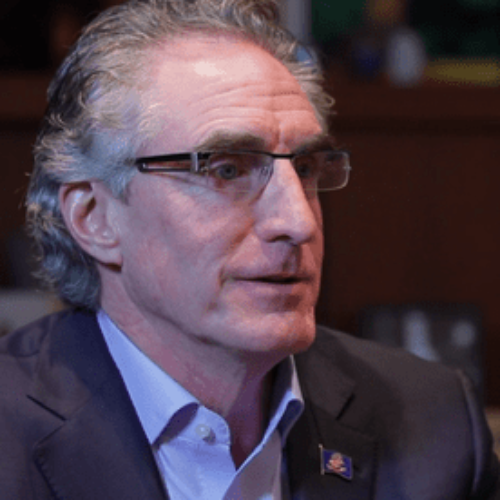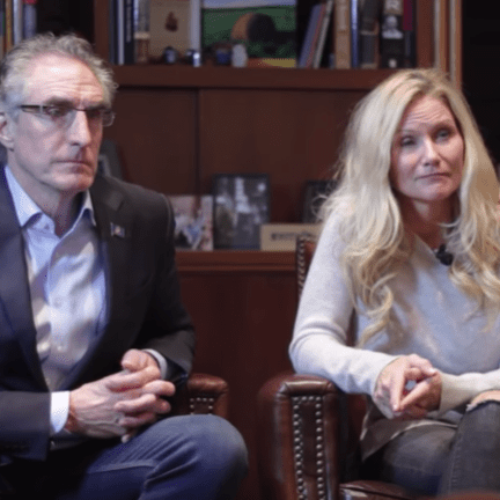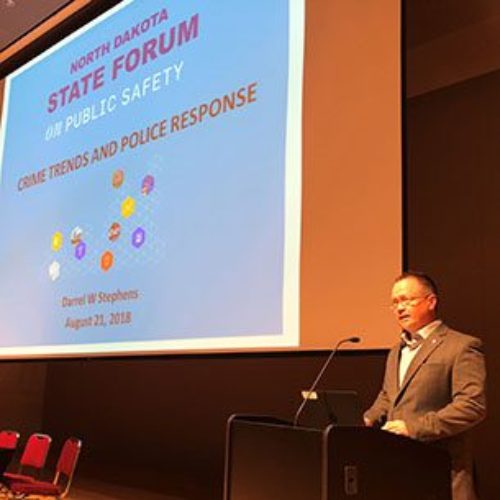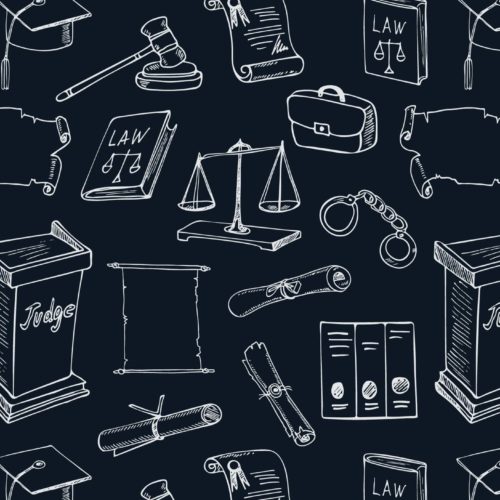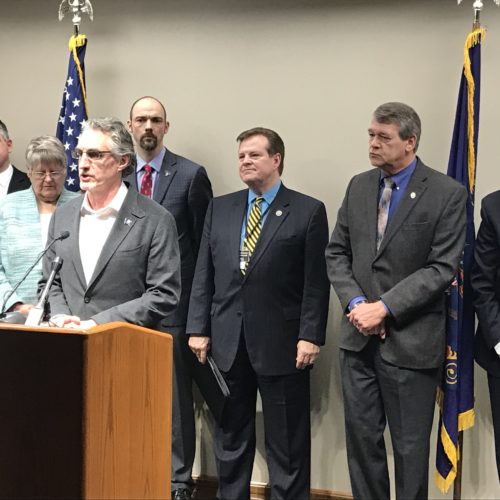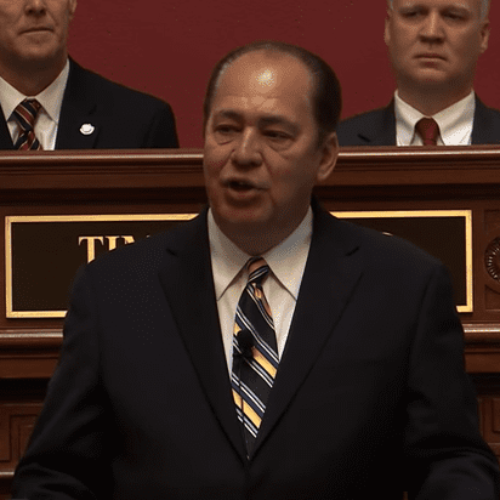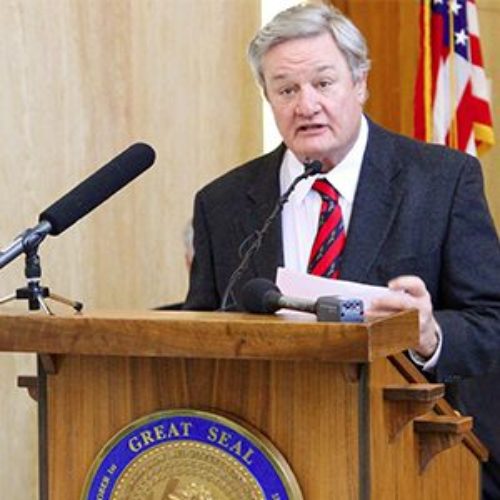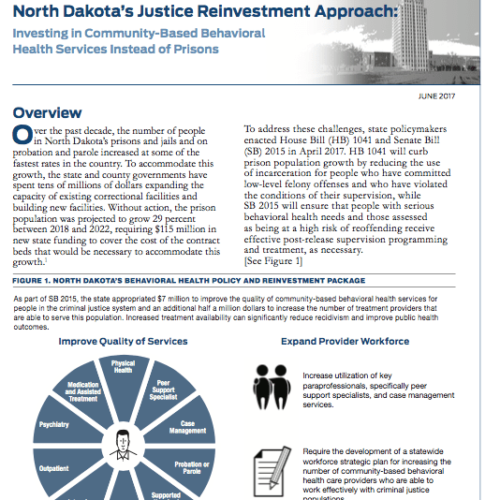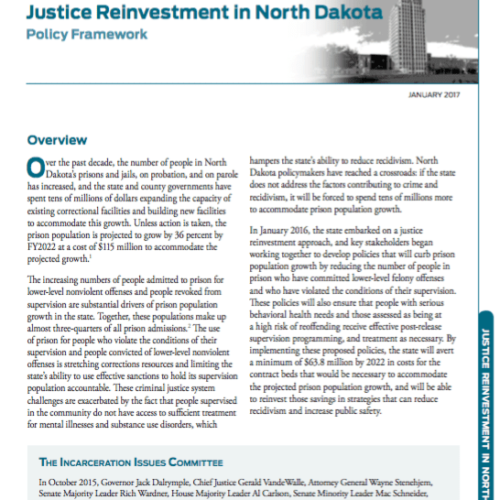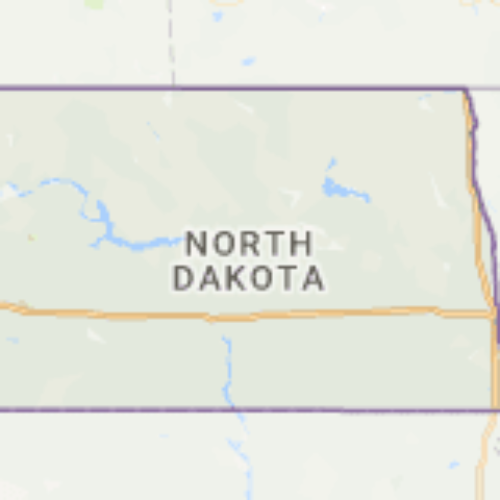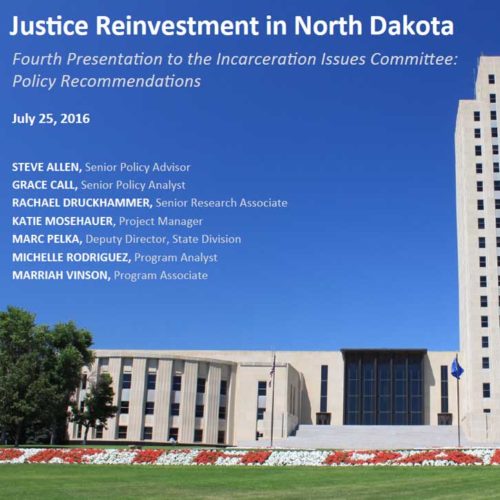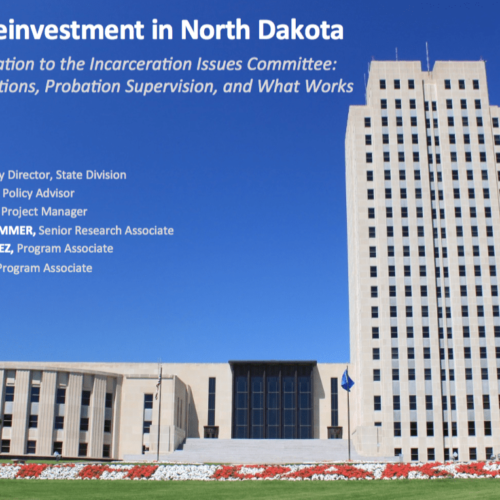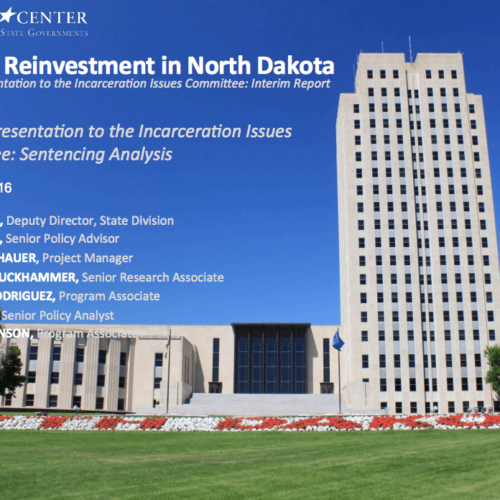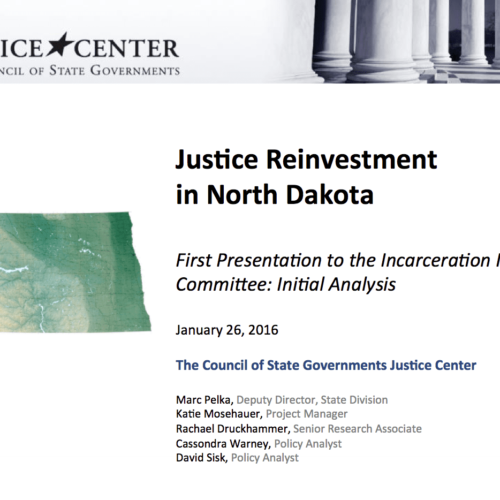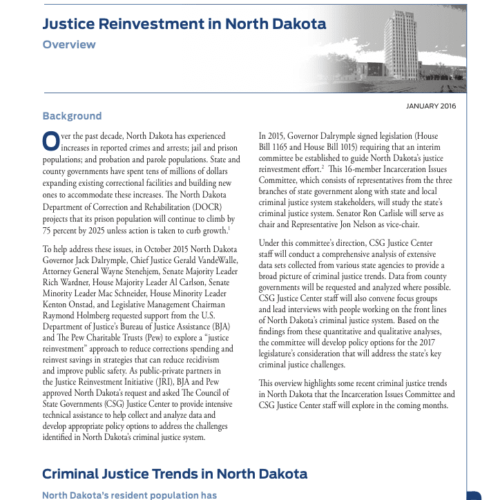Justice Reinvestment in North Dakota
The Problem
Over the past decade, the number of people in North Dakota’s prisons and jails, on probation, and on parole increased, and the state and county governments spent tens of millions of dollars expanding the capacity of existing correctional facilities and building new facilities to accommodate this growth. In 2017, the prison population was projected to grow 36 percent by 2022 at a cost of $130 million.
How JRI Helped
To address these challenges, state leaders requested intensive technical assistance from the CSG Justice Center with support from The Pew Charitable Trusts and the U.S. Department of Justice’s Bureau of Justice Assistance to use a data-driven Justice Reinvestment approach to help the state reduce the corrections population, contain corrections spending, and reinvest a portion of the savings in strategies that can reduce recidivism and increase public safety. The Incarceration Issues Committee—which included stakeholders from all three branches of government—worked with CSG Justice Center staff to review analyses and develop policy options.
On April 21, 2017, Governor Doug Burgum signed Senate Bill 2015 and House Bill 1041, which were designed to curb prison population growth by reducing the number of people in prison who have committed lower-level felony offenses and who have violated the conditions of their supervision by placing them on probation and limiting length of stay, respectively.
As a result, prison space will be prioritized for people who are convicted of serious and violent offenses, and supervision resources will be focused on people who are most likely to reoffend. By implementing these policies, the state will be able to reinvest those savings in strategies that can reduce recidivism and increase public safety.
The state appropriated $7 million under SB 2015 to improve the quality of community-based behavioral health services for people in the criminal justice system and $500,000 to increase the number of treatment providers that can serve this population. The establishment of the Free Through Recovery (FTR) program was announced by Governor Burgum in September 2017 and launched the following February with 13 initial community providers offering services in locations throughout the state.
The CSG Justice Center provided implementation assistance by engaging and training community providers and supervision officers to build local FTR care teams, developing performance measures to monitor FTR impacts, and conducting preliminary process evaluations to strengthen the program model. As of March 2020, the number of FTR providers had grown to 48, and by July 2022, more than 2,700 people had participated in the program.











